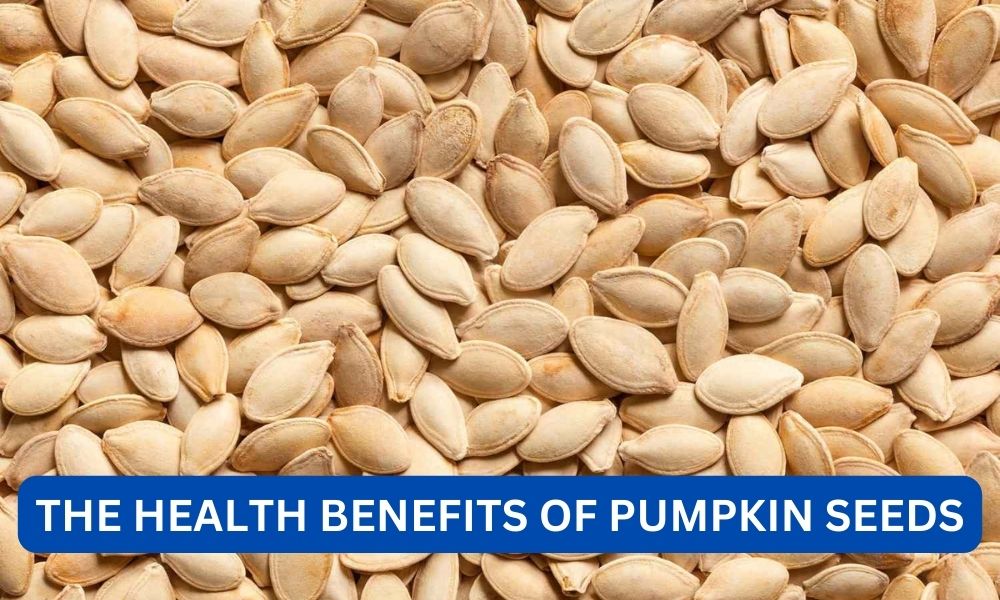Pumpkin seeds, also known as pepitas, are the edible seeds of the pumpkin fruit. They have been consumed for centuries and are a staple in many cuisines around the world. These small but mighty seeds are not only delicious, but they also pack a powerful punch when it comes to nutrition. In fact, pumpkin seeds are considered a superfood due to their numerous health benefits. In this article, we will explore the various health benefits of pumpkin seeds and why you should consider incorporating them into your diet.
Contents
Rich in Nutrients and Antioxidants
Pumpkin seeds are a rich source of essential nutrients and antioxidants that are vital for maintaining good health. They are an excellent source of protein, healthy fats, fiber, and various vitamins and minerals. A 1-ounce serving of pumpkin seeds contains:
- Protein: 7 grams
- Fiber: 1.7 grams
- Fat: 13 grams (6 of which are healthy unsaturated fats)
- Manganese: 42% of the recommended daily intake (RDI)
- Magnesium: 37% of the RDI
- Phosphorus: 33% of the RDI
- Copper: 19% of the RDI
- Zinc: 14% of the RDI
- Iron: 14% of the RDI
- Potassium: 12% of the RDI
- Vitamin K: 18% of the RDI
In addition to these essential nutrients, pumpkin seeds also contain a high concentration of antioxidants, including carotenoids and vitamin E. These antioxidants help protect the body from free radical damage, which can lead to chronic diseases such as cancer and heart disease.
Read:What are the benefits of eating kiwi?May Improve Heart Health
Heart disease is the leading cause of death worldwide, and maintaining a healthy heart is crucial for overall well-being. Pumpkin seeds have been shown to have a positive impact on heart health due to their high levels of healthy fats, fiber, and antioxidants.
Studies have found that consuming pumpkin seeds can help lower LDL (bad) cholesterol levels and increase HDL (good) cholesterol levels, which can reduce the risk of heart disease. Additionally, the high levels of magnesium in pumpkin seeds have been linked to a lower risk of heart disease and stroke.
Furthermore, pumpkin seeds contain nitric oxide, a compound that helps relax and dilate blood vessels, improving blood flow and reducing blood pressure. This can also contribute to a healthier heart and a reduced risk of heart disease.
May Help Regulate Blood Sugar Levels
Maintaining stable blood sugar levels is essential for overall health, especially for individuals with diabetes. Pumpkin seeds have been found to have a positive impact on blood sugar levels due to their high fiber and protein content.
Fiber helps slow down the absorption of sugar into the bloodstream, preventing spikes in blood sugar levels. Protein, on the other hand, can help regulate insulin levels, which is crucial for individuals with diabetes. Studies have shown that consuming pumpkin seeds can improve insulin sensitivity and reduce blood sugar levels in individuals with type 2 diabetes.
Read:What are the benefits of collagen peptides?May Aid in Weight Loss
Pumpkin seeds are a nutrient-dense food that can help you feel full and satisfied, making them an excellent addition to a weight loss diet. The high protein and fiber content in pumpkin seeds can help reduce appetite and cravings, leading to a lower calorie intake.
Furthermore, pumpkin seeds are a good source of healthy fats, which can help boost metabolism and promote fat burning. Studies have also shown that consuming pumpkin seeds can increase levels of the hormone adiponectin, which is involved in regulating fat storage and metabolism.
May Improve Prostate and Bladder Health
Pumpkin seeds have been traditionally used to promote prostate and bladder health, and recent studies have confirmed their effectiveness. The high levels of zinc in pumpkin seeds have been linked to a reduced risk of prostate enlargement and prostate cancer.
Moreover, pumpkin seeds contain compounds called phytosterols, which have been found to improve bladder function and reduce symptoms of overactive bladder. These benefits make pumpkin seeds a valuable addition to the diet for men’s health.
May Boost Immune Function
The immune system plays a crucial role in protecting the body from infections and diseases. Pumpkin seeds contain various nutrients and antioxidants that can help boost immune function and protect against illnesses.
Read:What are the benefits of rose water?The high levels of zinc in pumpkin seeds have been found to enhance immune function and reduce the risk of infections. Additionally, the antioxidants in pumpkin seeds can help reduce inflammation and protect against oxidative stress, which can weaken the immune system.
May Improve Sleep Quality
Getting enough quality sleep is essential for overall health and well-being. Pumpkin seeds contain tryptophan, an amino acid that helps promote the production of serotonin, a hormone that regulates sleep and mood.
Furthermore, pumpkin seeds are a good source of magnesium, which has been linked to improved sleep quality. Studies have shown that magnesium can help reduce insomnia and improve sleep duration and quality.
How to Incorporate Pumpkin Seeds into Your Diet
Pumpkin seeds are versatile and can be easily incorporated into your diet in various ways. Here are some ideas to help you enjoy the health benefits of pumpkin seeds:
- Snack on a handful of raw or roasted pumpkin seeds.
- Add pumpkin seeds to your breakfast cereal or oatmeal.
- Sprinkle pumpkin seeds on top of salads or soups.
- Use pumpkin seed butter as a spread on toast or crackers.
- Include pumpkin seeds in homemade granola or energy bars.
Conclusion:
Pumpkin seeds are a nutritional powerhouse that offers numerous health benefits. They are rich in essential nutrients, antioxidants, and healthy fats, making them a valuable addition to any diet. From improving heart health and regulating blood sugar levels to promoting prostate and bladder health, pumpkin seeds have a lot to offer. So, next time you carve a pumpkin, don’t throw away the seeds. Instead, roast them and enjoy the many health benefits they have to offer.









